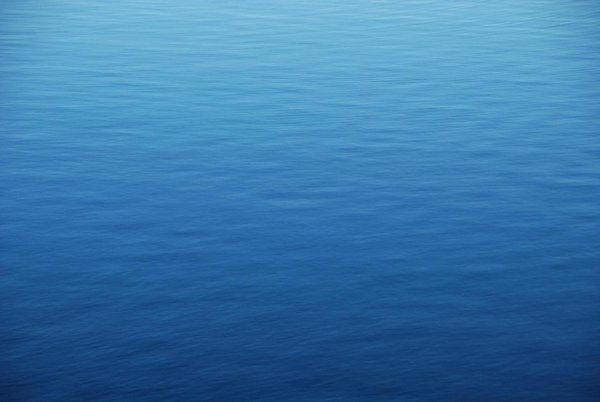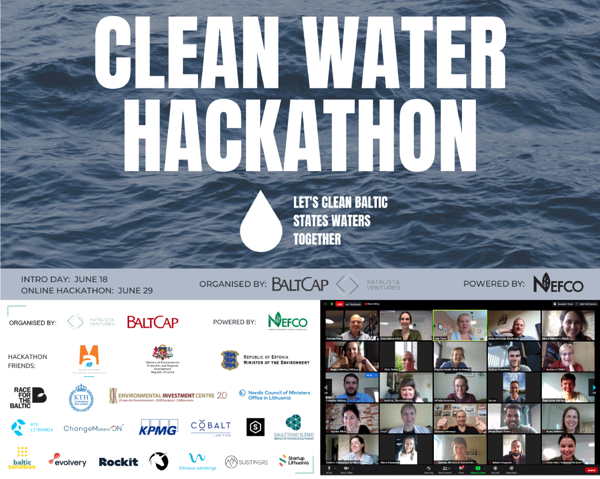Hackathon co-organised by BaltCap awards startups focusing on the drainage system and cleaning the bottom of water bodies
Clean Water Hackathon organised by BaltCap and innovation consultancy Katalista Ventures, and backed by Nefco, mobilised seven pan-Baltic expert teams to find actionable solutions for improving the quality of the Baltic waters. The winners of the hackathon are two startups - EkoDrena from Lithuania and PurOceans from Latvia.
During the hack, EkoDrena provided a solution for mitigating the negative environmental effects of farming. Farming has become the main polluter of the surface waters of the Baltic Sea region due to washed out fertilizers that greatly increases eutrophication processes. EkoDrena proposed an adjustable underground drainage system regulating the water retention in the soil and keeping the critical value in the fields with the help of drainage. The system also enables to slow down the eutrophication processes in the surface of the water. The adjustable system developed by EkoDrena allows farmers to regulate the humidity of the soil and thereby align it to weather conditions.
The second winner, PurOceans, developed a unique technology to clean up the waterbody’s floor sediments, micro-plastic, chemicals, and other pollution elements. PurOcean provided a non-intrusive, chemical, and excavation free solution allowing to clean waterbody’s floor without causing damage to flora and fauna. Their portable technology pumps high-pressure air bubbles into the waterbody’s floor, forcing pollutant particles to rise to the surface where they are safely collected and removed. With the novel technology, 98% of pollutants can be removed and enhanced from the seabed while preserving the existing ecosystem at the most cost and time-effective way.
Clean Water Hackathon was organised to draw attention to the water quality issues in the Baltics and find actionable and financially valid solutions for mitigating the problem. The participant teams were preselected teams solving environmental challenges on a daily basis. The hackathon provided the teams a different setting in terms of time span and tools for working – the teams were mentored by numerous experts from marketing, law, environmental protection, business, information technology, and other fields.
Clean Water Hackathon lasted for a record-long 12 days, including 85 team meetings with mentors and partners. The event attracted a great number of international organisations from all three Baltic countries, Spain, Sweden, Denmark, and the UK. Organisations included such key market players in the water ecosystem like the Ministries of the Environment in Lithuania, Latvia, and Estonia; Environmental Investments Centre in Estonia; Race for the Baltic Accelerator; KPMG; Cobalt law firm; Black Unicorn PR and many others.
Other participants:
- Funguys (LV) - developing and optimizing the biological treatment bio fungi span for treating the wastewater from pharmaceutical substances.
- Litmus (LT) - developing an app for engaging citizens in improving water monitoring and raising awareness of water quality.
- AzureBlue (EE+LT) - creating a platform that will help to get transparent, available information on water pollution using satellite data.
- Time to change (LV) - developing a framework for various beneficiaries to apply a decision-making tree to make more eco-friendly events and mitigate the negative impact.
- Biovala (LT) - creating artificial floating islands helping to decrease the levels of nitrogen and phosphorus in our waters.
For more information please contact:
Sarunas Stepukonis
Partner, BaltCap Infrastructure Fund
Phone +370 6866 6201
sarunas.stepukonis@baltcap.com
www.baltcap.com

